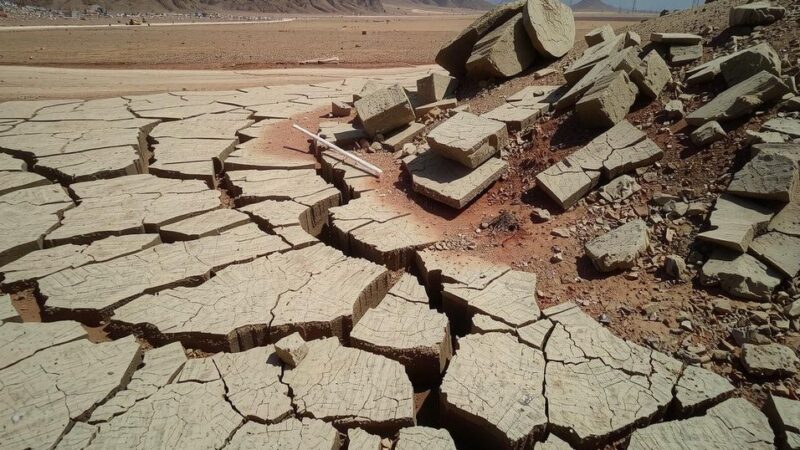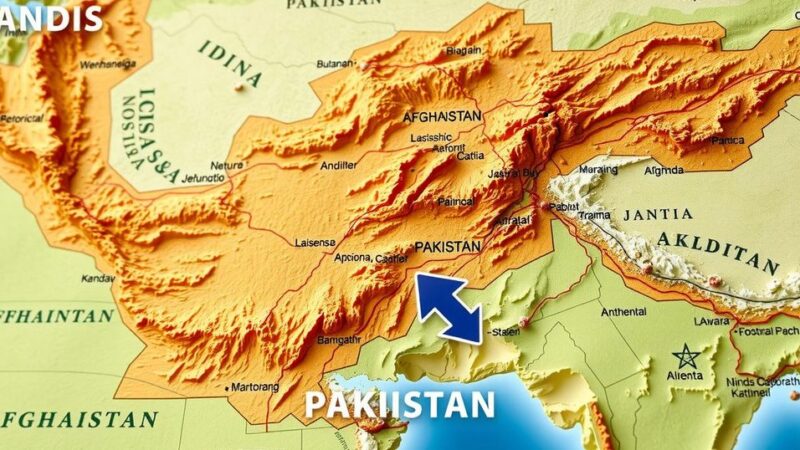Metro Vancouver experienced two recent earthquakes, a 3.5-magnitude on October 4 and a 3.8-magnitude on September 26, raising concerns about potential future quakes, possibly larger in scale. Experts suggest that while the region sees frequent low-magnitude quakes, significant seismic events could occur, influenced by factors like magnitude and depth. Although concerns regarding a major earthquake persist, the most likely outcome may be smaller tremors rather than catastrophic events.
Recent seismic activity around Metro Vancouver has raised alarms about the potential for a significant earthquake in the region. On October 4th, a magnitude 3.5 earthquake struck just after 2 a.m., originating approximately 18 kilometers west of Delta, British Columbia. This followed a similar event just days prior, a 3.8-magnitude quake in Haro Strait recorded on September 26th. Simon Fraser University Professor Emeritus John Clague highlighted that lower-magnitude earthquakes are common in British Columbia, occurring daily, although most are not felt by residents. The recent quakes, however, have drawn attention due to their proximity to the Lower Mainland, suggesting the possibility of a stronger tremor in the future. Professor Clague noted, “The proximity of the last couple of quakes to the Lower Mainland shows a potential for an earthquake closer to home… Maybe we could get an earthquake in Vancouver.” He explained that while magnitude 3 or 4 earthquakes usually do not cause damage, a magnitude 5 quake could lead to significant destruction, especially if it occurs closer to urban areas. The term “Big One” often evokes fear among locals, referencing the potential for a devastating earthquake from the Cascadia subduction zone that would far exceed magnitude 7. However, Clague reassured that such monumental events occur only every 400 or 500 years. He emphasized that it is more likely that smaller quakes could be triggered by recent seismic activity. Factors such as the earthquake’s magnitude, source location, and depth are crucial in determining the potential damage to Metro Vancouver. High-magnitude quakes released closer to surface layers are more destructive. Moreover, earthquakes can strike at any hour; however, those occurring at night tend to be less widely reported. Clague pointed out that recent smaller tremors did not produce long-lasting ground motion, thus going unnoticed by many residents. Despite this, he affirmed, “When you get in mag 3 or higher there is a potential for people to feel them.” As such, the frequency of small earthquakes serves as a reminder that the region is, indeed, susceptible to seismic activity. The nature of seismic activities highlights the continuous geophysical dynamics between tectonic plates, a process that is beyond human control, relying solely on Earth’s natural mechanisms.
Metro Vancouver is situated in an active seismic zone where the Juan de Fuca and North American tectonic plates interact. Earthquakes are a common occurrence, with lower magnitude events happening daily. However, historical context suggests that while numerous minor quakes happen regularly, significant tremors can be infrequent. Experts monitor seismic activity closely, as the region has experienced notable quakes that can lead to substantial damage under certain circumstances. Recent events—including a 3.8-magnitude earthquake on September 26 and a 3.5 quake shortly thereafter—have created speculation regarding the likelihood of a more powerful earthquake in the area.
In conclusion, while recent seismic activity in Metro Vancouver has sparked concerns about the likelihood of future earthquakes, particularly larger ones, experts continue to emphasize the need for perspective. The occurrence of smaller magnitude tremors is commonplace, and while heightened seismic activity can indicate changes in tectonic dynamics, significant events like the so-called “Big One” are not imminent. Residents are urged to remain aware of their natural environment and consider preparedness while understanding the geological context of their region.
Original Source: www.vancouverisawesome.com







